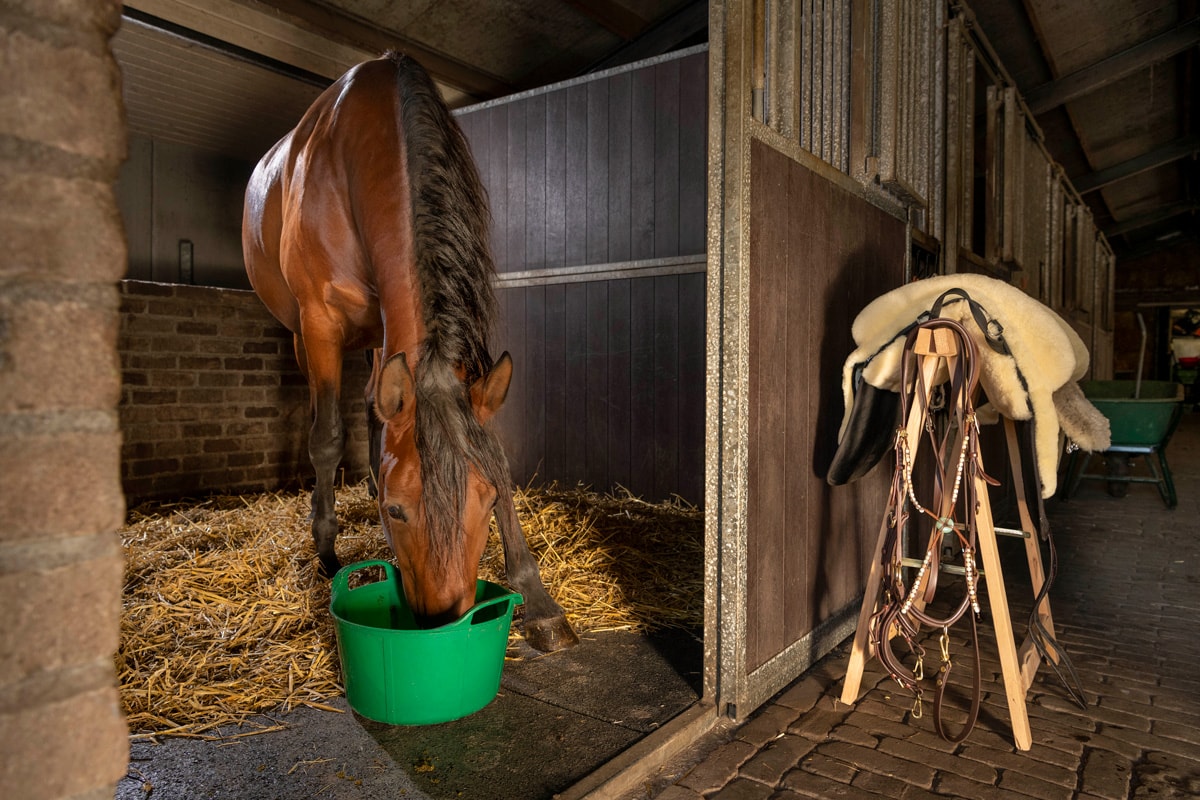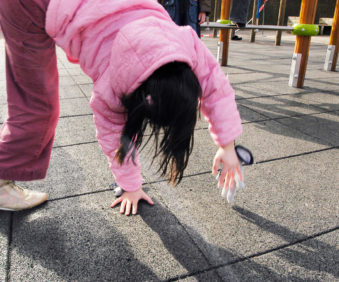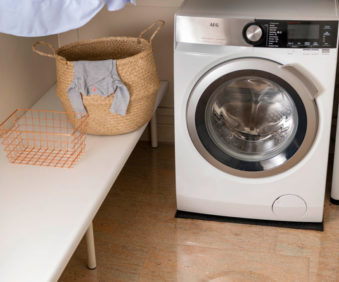Rubber stable tiles reduce straw consumption by 50-70 per cent
Permeable rubber tiles drain urine away immediately, which means that stables can be kept clean and dry for longer.
This results in significantly lower straw consumption and lower maintenance costs, offering savings of up to 70 per cent.
A stable with a hard, impermeable floor gets through a huge amount of straw littering. Research carried out by Wageningen University has shown that straw consumption in riding stables varies from 10 to 15 kilos per horse, per day, depending on the size of the stable. The littering can cost between €250 and €1,450. Wheat straw appears to be the cheapest form of littering and the most economical in use. The trampling of littering and having to muck out several times a week increases littering costs, as well as the amount of labour that’s required.
Granuflex stable tiles cut straw consumption by half. Because the straw stays drier, savings of up to 70 per cent can be achieved. Granuband has been making permeable rubber stable tiles since 1994. Most stables in the Netherlands have concrete floors that are lined with straw (or other littering) to collect the horses’ droppings and make the ground a bit gentler on their hooves and joints. Rubber tiles are a better option and more comfortable for horses:
- The spongy material helps prevent injuries
- The straw stays drier, so horses are more inclined to lie down in the stable
- The rubber absorbs shocks and noise
- The drainage properties of the tiles are a boon to better hygiene
sustainable and wear-resistant
The stable should have a gutter to drain the urine and, ideally, the floor should be slightly inclined so that it can be watered regularly from the highest part. This makes it easier for the floor beneath the tiles to be rinsed and disinfected.
To ensure that urine can pass straight through them, Granuflex rubber stable tiles are fabricated from extra-coarse rubber granulate. “We make the granulate from a special mix of automotive tyres,” says Edwin Kuiper, sales and marketing manager at Granuband. “The tyre mix contains less nylon, which optimises the flow of urine through the tile.”
To bond the granulate during the pressure phase, a high-quality, ammonia-resistant adhesive is used. This underscores the rigidity of the product, particularly in the long term. Granuflex stable tiles are sustainable and wear-resistant.
Several tests have shown that the water permeability of Granuflex rubber stable tiles complies with the most stringent drainage requirements. And when they have reached the end of their life cycle, the tiles can be returned to Granuband, after which the rubber is once again recycled and reused. All this makes Granuflex stable tiles the most sustainable available anywhere in Europe.
Other product groups




